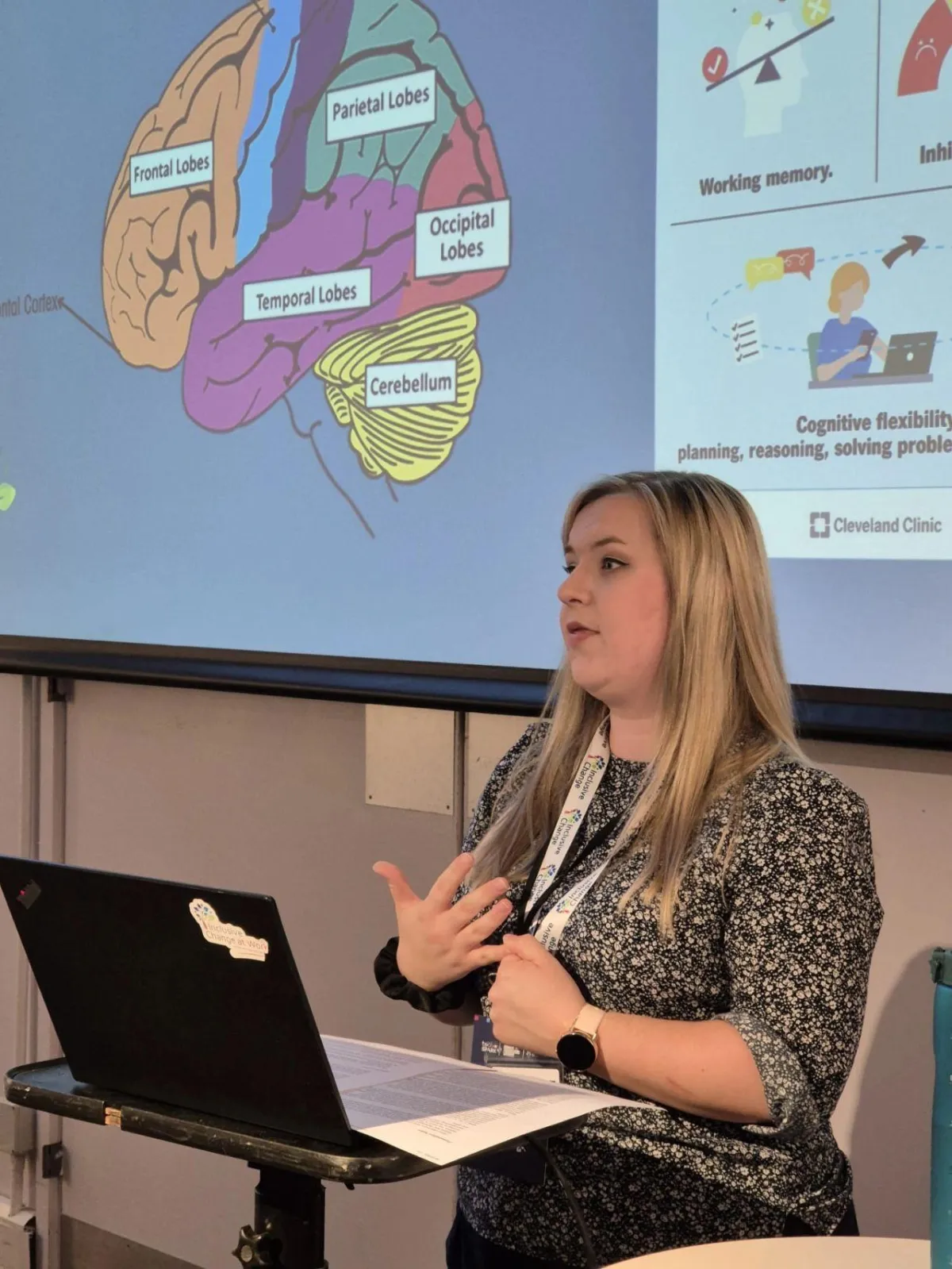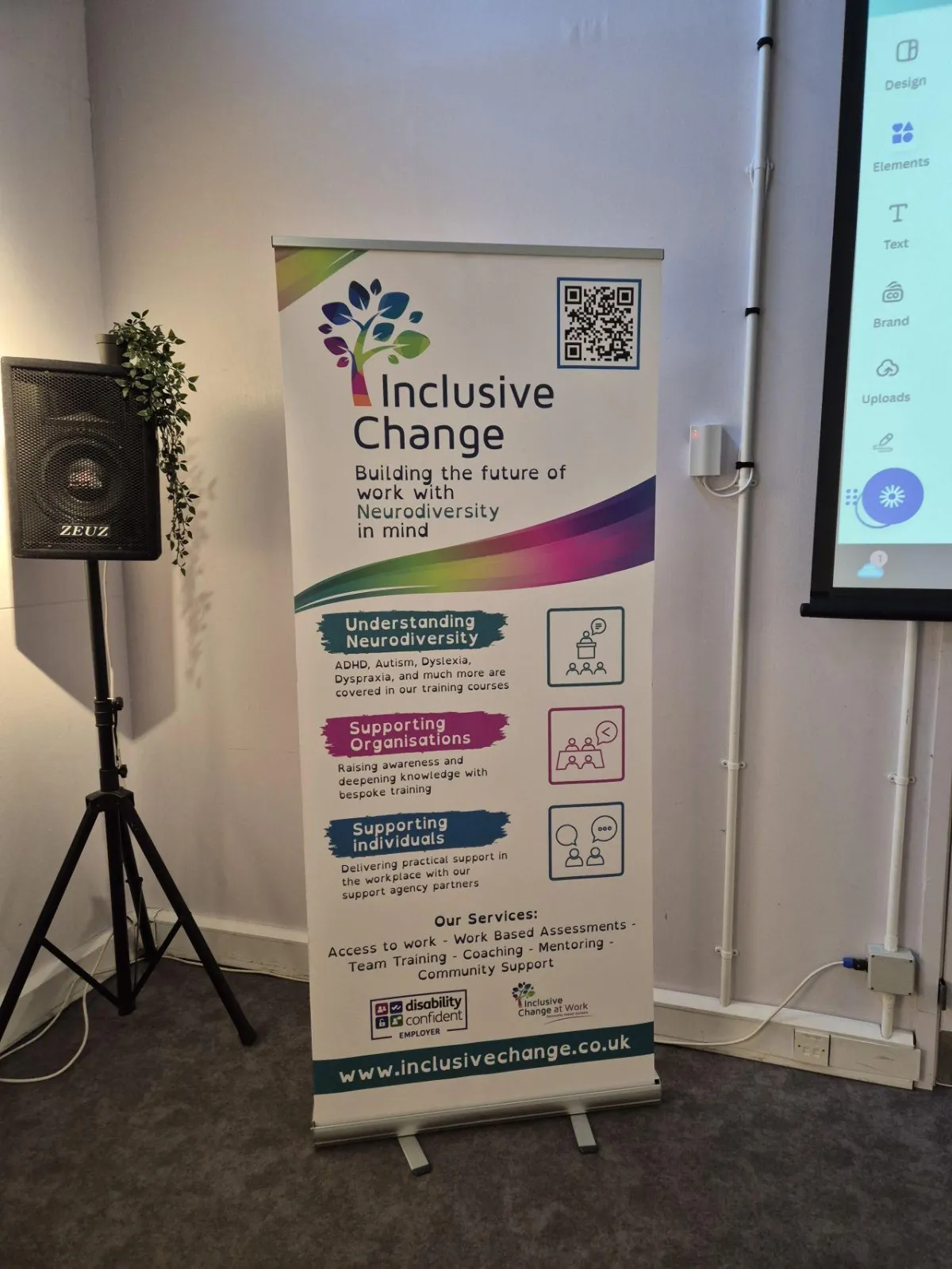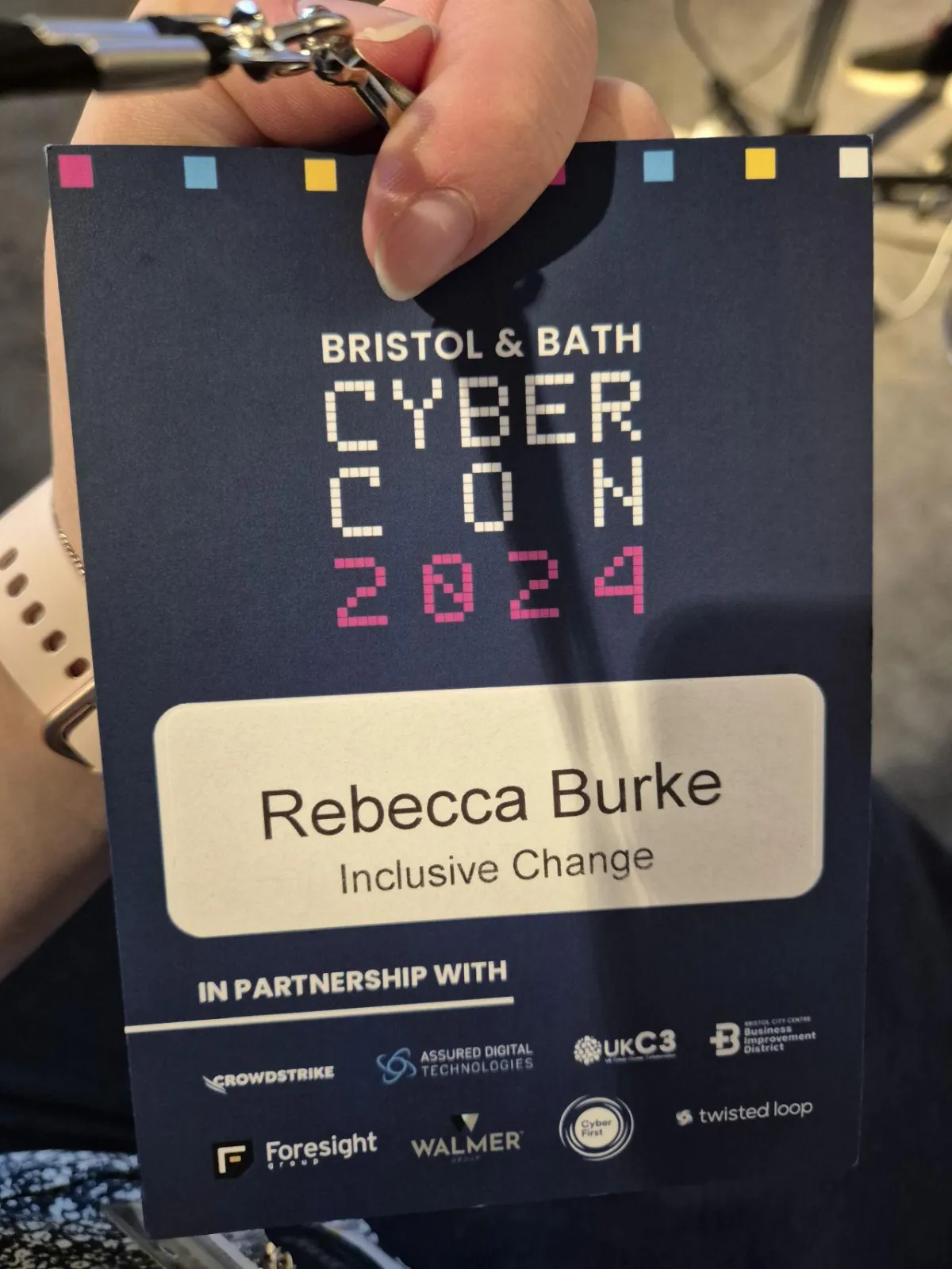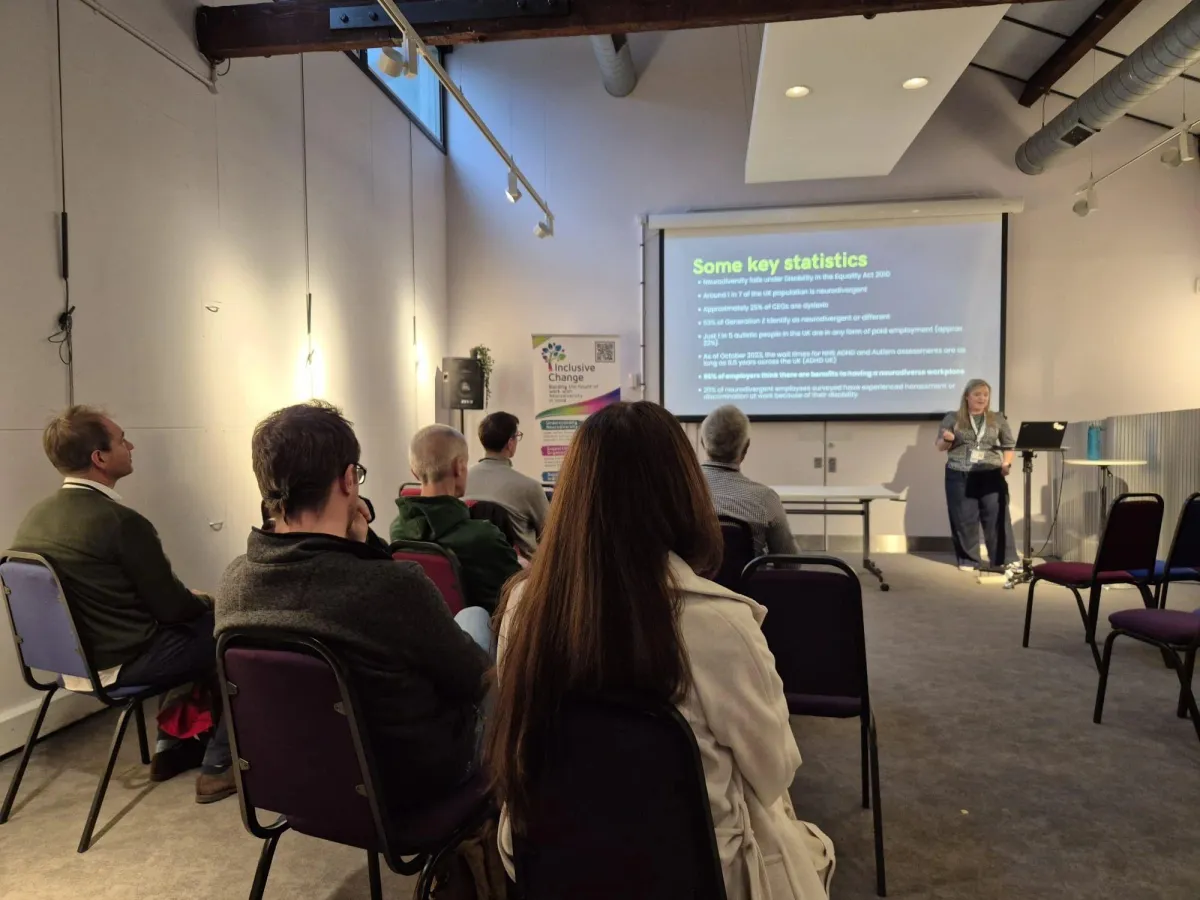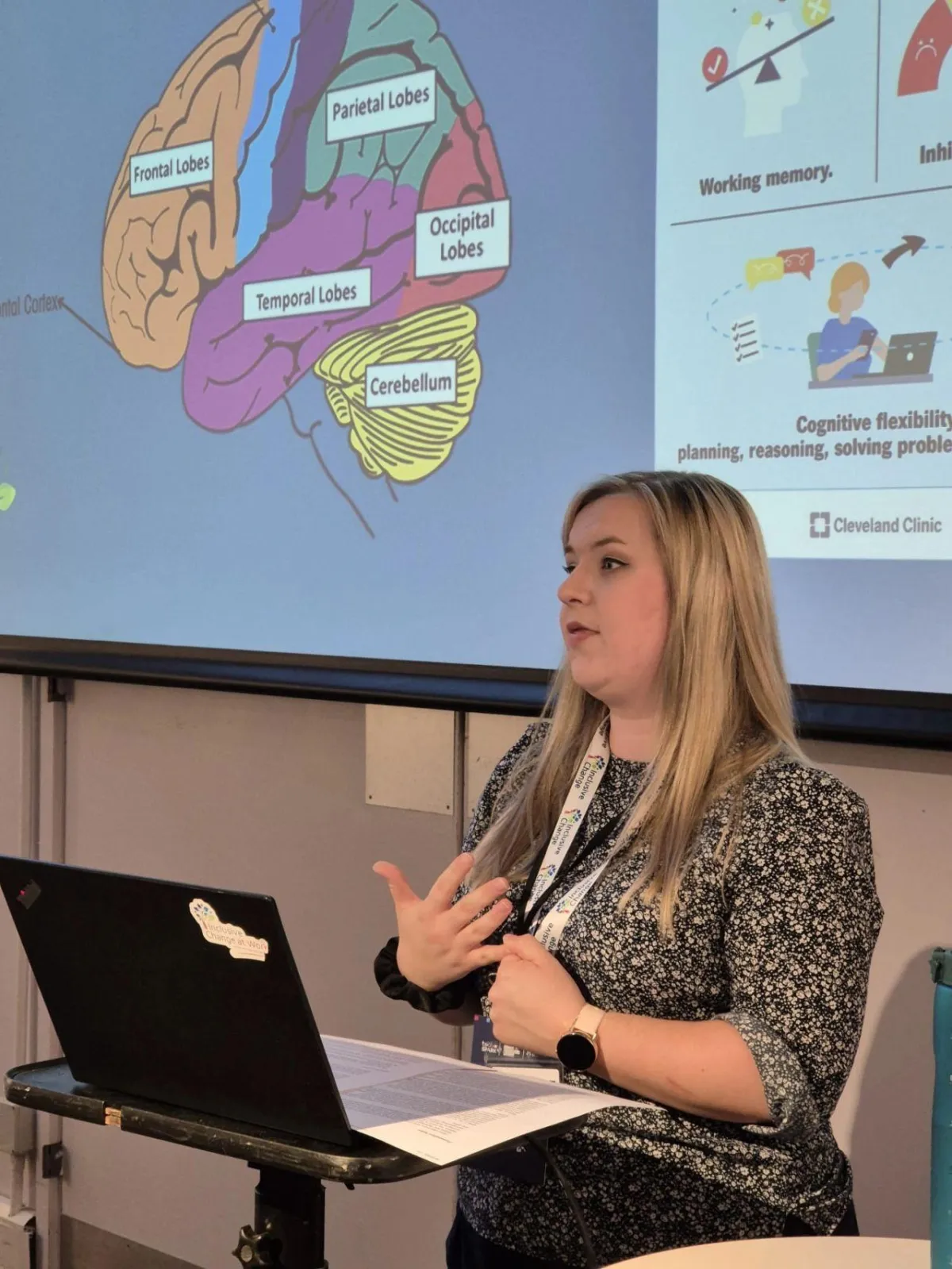
Becca Burke
Speaker
Empowering Neurodiversity in the workplace
Hi, I am Becca!
I'm Becca, a passionate advocate for neurodiversity and understanding ADHD in the workplace. Living with ADHD (combined presentation) myself, I bring a unique blend of professional experiences and personal insights to the conversation about creating inclusive, productive work environments. Equity in the workplace is especially important for us as neurodiverse folk; if given the adjustments and support we need, we can not only survive, but thrive at work.
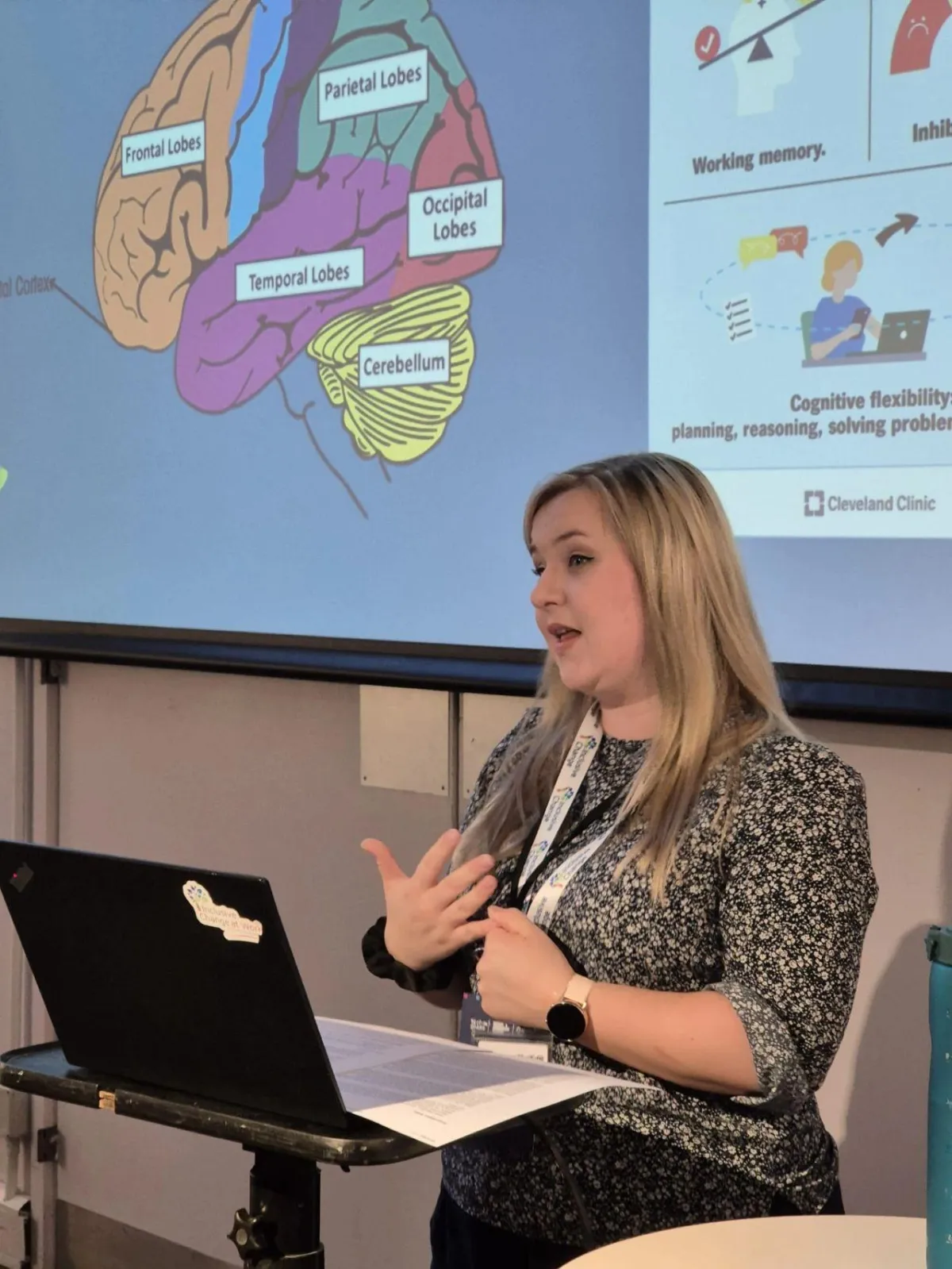
My professional journey
My career path has been varied, in true ADHD style! From my early days in customer relations to roles in sales and account management, I've always excelled in building relationships and understanding people's needs. My time at a FTSE 100 bank gave me a solid foundation for navigating large organisations and the politics of the office environment, and I then had to adapt quickly to the drastic changes of the Covid-19 Pandemic Lockdown. It was during this time, recognising the disruption to my routine, hyperfocusing on work outside of my core hours, and my inability to finish any tasks to completion, that I realised something wasn’t working for my brain.
Throughout my career, I’ve recognised that I was struggling, but never quite understood why. I saw so much of my own journey in the struggles I heard from other neurodiverse people, and I wanted to find a way that I could tangibly make a difference. After my own diagnosis in early 2024, I was inspired to become an ADHD Coach with Leanne Maskell's ADHD Works, and led to me being headhunted for Inclusive Change Ltd as Support Specialist.
My Areas of Expertise
- ADHD awareness and management strategies
- Education and training around ADHD for businesses
- Job coaching neurodivergent clients at work
- Rejection Sensitive Dysphoria awareness/training
- Business process improvement for neurodiverse workforce support
- Working with clients as a neurodiversity educated Virtual Assistant
- Neurodivergent talent recruitment and retention
- ADHD Works Level 1 Coach
Popular Discussion Topics
- Rejection Sensitive Dysphoria (RSD) & ADHD
- ADHD and the menopause
- ADHD screening in prisons
- ADHD and neurodiversity co-occuring traits
- ADHD celebrities
- Current research development
Living with ADHD
- Physiological difference in the brain
- ADHD facts and figures
- Common misconceptions
- Lived experience
- Interactive Q&A
ADHD in the Workplace
- Common challenges and strategies
- Strengths ADHDers bring to the workplace
- Challenges for us in the workplace
- Helpful strategies
- Reasonable Adjustments
- Equality Act 2010 protection
My Speaking Style
I pride myself on being engaging, insightful, and empathetic. My presentations blend personal anecdotes, research-based strategies, and interactive elements that leave audiences both informed and inspired. I like making complex topics accessible, and providing concrete, implementable solutions to common workplace challenges.
Why Choose Me?
At Inclusive Change, we understand your ‘Why,’ and meet you where you are on your journey as a business. Whether you're looking to educate your HR or leadership teams, or provide valuable insights to your entire organisation, I can help. I don’t believe that we as neurodivergent people need to change who we are to succeed; with the right support, education and awareness, we can be ourselves without compromise.
Work with me
Ready to transform your understanding of ADHD in the workplace?
Would you like me to run a workshop for you?
Get in touch using my calendar below.
Read my blog here: https://inclusivechange.co.uk/blog/b/adhd-and-me
Read more
The blog
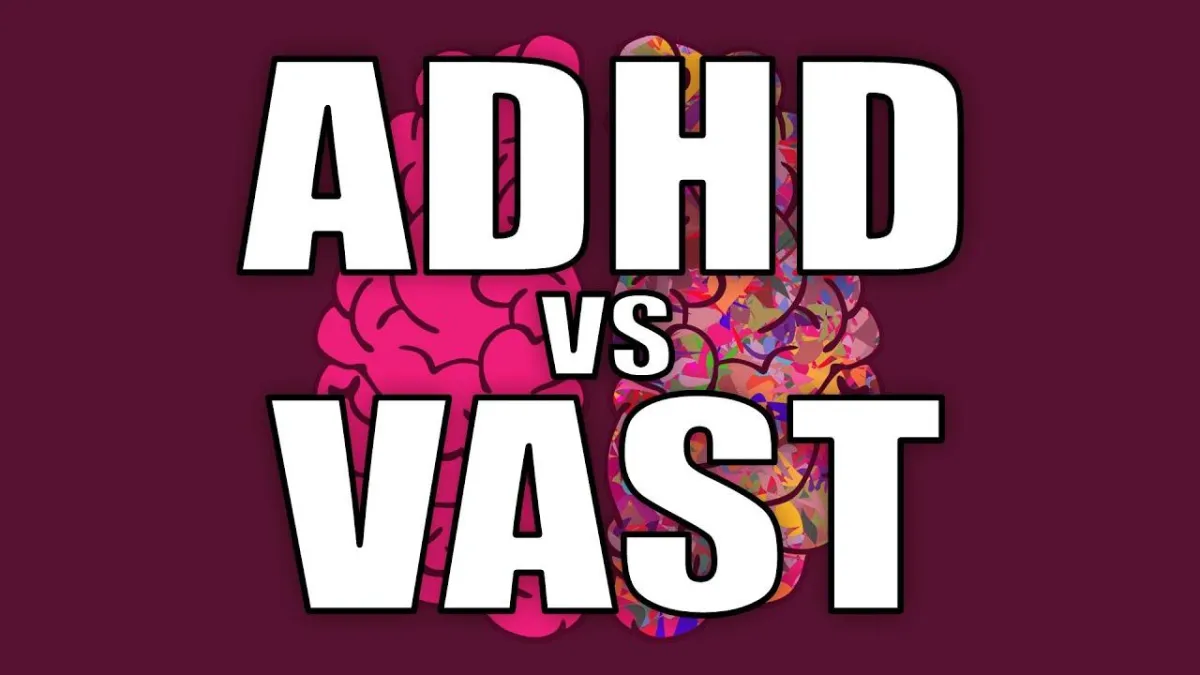
VAST Vs ADHD
Living with ADHD vs Living in Distraction: A New Lens on Focus
“I thought I might have ADHD before I started working here (Inclusive Change) - but now I know I definitely don’t.”
That reflection came from a team member during a recent conversation and it’s stuck with us - not because it dismissed the challenges of attention struggles, but because it highlighted something deeper: how easy it is to conflate everyday distraction with a neurodevelopmental condition, and how profoundly different the experience can be for those living with ADHD.
In our fast-paced, hyperconnected world, it’s no wonder so many people feel overwhelmed, unfocused, and mentally scattered. These experiences are real and increasingly common. BUT they don’t always mean someone has ADHD. Enter VAST: Variable Attention Stimulus Trait, a concept introduced by Dr. Edward Hallowell to describe the modern attention challenges many people face in environments flooded with stimuli.
Understanding VAST vs. ADHD
While ADHD (Attention-Deficit/Hyperactivity Disorder) is a well-recognised neurodevelopmental condition with a strong genetic basis, VAST - or Variable Attention Stimulus Trait - is a newer concept introduced by psychiatrist Dr. Edward Hallowell. It’s not a medical diagnosis, but rather a helpful framework to describe the scattered, foggy mental state many people experience in response to the digital and sensory overload of modern life.
VAST (Variable Attention Stimulus Trait), a concept proposed by Dr. Edward Hallowell, a psychiatrist who specialises in ADHD.
VAST is not a formal medical diagnosis but rather a term used to describe the increasing difficulty many people face in maintaining attention due to the overwhelming amount of stimuli in the modern world—such as constant notifications, social media, and fast-paced information overload.
How VAST Differs from ADHD
• Not a medical condition: Unlike ADHD, which is a recognised neurodevelopmental condition, VAST is more of a descriptive term for modern attention challenges.
• More situational: People with VAST may struggle with focus and impulse control due to environmental factors rather than an inherent neurological difference.
• Influenced by technology: VAST is largely driven by the demands of modern life - high-speed digital communication, endless choices, and constant multitasking.
Symptoms or Experiences of VAST
• Struggling to focus in over stimulating environments
• Feeling overwhelmed by too many tasks or options
• Difficulty in deep thinking due to constant interruptions
• Jumping between tasks without completing them
• Experiencing brain fog from digital overload
While ADHD is a lifelong neurodivergent condition with a strong genetic component, VAST is more about how modern life amplifies attention struggles for many people - whether or not they have ADHD.
Strategies for Managing VAST (Variable Attention Stimulus Trait)
Since VAST is largely influenced by the modern world’s constant stimuli, the key to managing it is reducing distractions, improving focus, and creating an intentional environment. Here are some practical strategies:
1. Reduce Digital Overload
• Control Notifications - Turn off non-essential notifications (emails, social media, news alerts).
• Batch Check Messages - Instead of checking your phone constantly, set specific times to check emails and social media.
• Use ‘Do Not Disturb’ Mode - Silence your phone when focusing on deep work.
2. Prioritise Deep Work & Focus
• The Pomodoro Technique - Work in focused 25-minute sprints with 5-minute breaks.
• Time Blocking - Set specific times for tasks rather than switching between them constantly.
• Use a ‘Focus Playlist’ - Listen to instrumental music or white noise to drown out distractions.
3. Reduce Sensory Overload
• Create a Distraction-Free Workspace - Declutter your desk and remove visual distractions.
• Manage Noise Levels - Use noise-cancelling headphones or work in a quieter environment.
• Adjust Lighting - Harsh lighting can contribute to overstimulation; softer, warm lighting can help.
4. Manage Information Overload
• Limit Multitasking - Focus on one task at a time instead of constantly switching.
• Use a Notes App or Journal - Write down ideas instead of trying to hold everything in your head.
• Set Boundaries for News & Social Media - Decide when and how long you will engage with digital content.
5. Build Routines to Support Attention
• Start & End Your Day with a Routine - Have structured habits that help you transition into and out of work.
• Set Up ‘Trigger Tasks’ - Small actions that tell your brain it’s time to focus (e.g., making tea before deep work).
• Break Large Tasks Into Small Steps - Reduces overwhelm and makes starting easier.
6. Move Your Body to Reset Attention
• Short Walks - Take a walk outside to clear your mind between tasks.
• Stretch or Do Breathing Exercises - Helps reduce stress and improve focus.
• Exercise Regularly - Physical activity increases dopamine and improves cognitive function.
7. Leverage External Tools
• Use Focus Apps - Apps like Forest, Freedom, or Cold Turkey block distractions.
• Try Physical Timers - A kitchen timer can help with time blocking.
• Use a Task Manager - Apps like Notion, Trello, or Todoist keep tasks organised.
8. Be Kind to Your Brain
• Get Enough Sleep - Sleep deprivation worsens attention issues.
• Stay Hydrated & Eat Well - Blood sugar crashes and dehydration can impact focus.
• Accept That Your Brain Works Differently - Instead of forcing yourself into rigid productivity norms, embrace what works for you.
Want to know more: get in touch [email protected]
Some of the Companies Inclusive Change Have Worked With So Far


Column Header
Lorem ipsum dolor sit amet consecetuer lorem ipsum
Organically grow the holistic world view of disruptive innovation
At the end of the day, going forward, a new normal that has evolved
Column Header
Lorem ipsum dolor sit amet consecetuer lorem ipsum
Organically grow the holistic world view of disruptive innovation
At the end of the day, going forward, a new normal that has evolved
Column Header
Lorem ipsum dolor sit amet consecetuer lorem ipsum
Organically grow the holistic world view of disruptive innovation
At the end of the day, going forward, a new normal that has evolved
Inclusive Change Ltd
The Brightwell, Bradbury House
Wheatfield Drive
Bradley Stoke, Bristol
BS329DB
Copyright 2025 - Inclusive Change Ltd
Companies House: 12412464
VAT NO: 352 1564 17
ICO Reg: ZB081779
UK Register of Learning Providers: 10090652

